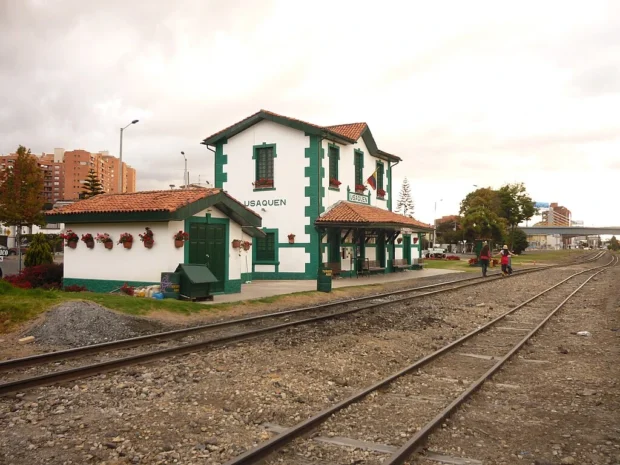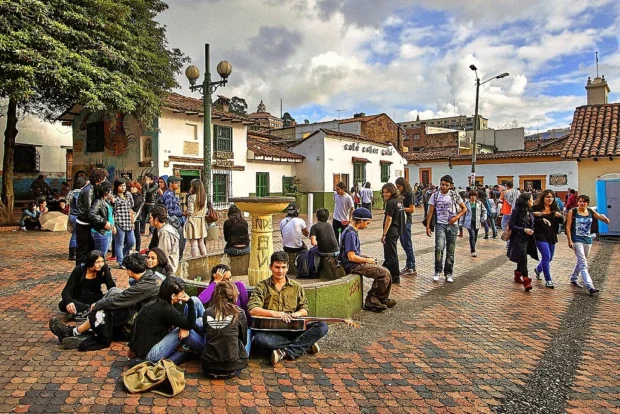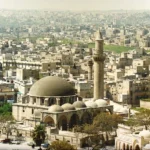When I first arrived in Bogota, Colombia, I felt like stepping into a city full of contrasts. The air was fresh but sometimes cool, as the city sits high in the Andes Mountains, around 2,640 meters above sea level. Bogota is more than just a capital city-it’s a mix of old and new, quiet parks and loud markets, colonial buildings next to modern skyscrapers. For anyone curious about urban history and cultural life, this place offers plenty to see and taste. Let me share my strolls around its neighborhoods, my chats with locals, and some surprises I met along the way.
Table of Contents

Historic Heartbeat: La Candelaria and Its Stories
La Candelaria is where Bogota’s soul feels close. This small neighborhood shows you the city’s colonial past with colorful walls, narrow cobblestone streets, and old churches. While walking there, I noticed street artists painting murals that tell stories of Colombia’s history and struggles. One favorite spot is Plaza Bolívar, where the grand cathedral meets the government buildings. It’s like standing where history’s most important moments took place. But the charm is not only in the monuments-the small cafés and bookshops invite you to slow down and feel the city’s pulse.

One morning, as I sipped a cup of rich Colombian coffee, an old man told me that Bogota once had a system of tramways to move people around-long gone now but remembered fondly. It made me realize how cities change, yet memories stick to the streets.

Hidden Corners to Sip and Savor
Eating in Bogota is a story in itself. The city’s food markets and neighborhoods reflect Colombia’s rich culinary diversity. Take the neighborhood of Chapinero, where traditional tastes meet new ideas. I found an inviting spot that serves ajiaco-a hearty chicken soup with different potatoes and corn, perfect for Bogota’s cool weather. The dish comes with cream and capers on the side, which sounds unusual but creates a lovely balance of flavors.

Another treat is in La Macarena, a quieter area known for artisanal food and crafts. I tried fresh arepas, simple corn cakes often filled with cheese or meats. Eating an arepa on the street while watching local artists was a moment I still recall with a smile.

Markets like Paloquemao are a feast for the senses. Here, colors pop from fruit stands filled with exotic fruits like lulo and guanabana, and vendors call out prices with lively voices. Walking these aisles, the scent of fresh herbs mixes with sweet smells of ripe mangoes. The sound of salsa music in the distance completes the scene. It’s a reminder that food is not just taste-it’s culture, connection, and community.
After experiencing Bogota’s rich flavors and streets, you might enjoy reading about São Paulo’s vibrant neighborhoods and tastes that offer a different but equally lively city atmosphere.

Moving Through Bogota: Ways to See the City
Getting around Bogota can feel like an adventure itself. I avoided taxis, choosing instead the TransMilenio bus system. It’s a fast and affordable way to cross the large city, though it can get crowded during rush hours. The buses run on special lanes, which helps them avoid traffic jams. On my rides, I noticed passengers nodding to salsa tunes from street musicians performing near the stops.

For shorter trips, cycling is becoming popular. The city has many bike paths, especially on Sundays when main roads close to cars for a citywide bike and walk event called “Ciclovía.” It’s a chance for families, fitness lovers, and artists to share the streets without cars. Riding a bike while spotting street vendors selling freshly squeezed juices made me feel like a local experiencing everyday life.

From the airport, you can take a bus or a shuttle service that leads directly into the city. The trip crosses busy neighborhoods and sometimes offers views of the surrounding mountains, reminding you of Bogota’s dramatic setting.

Customs and Culture: Friendly Tips to Blend In
Spending time with locals gave me insight into everyday customs. Colombians are warm and friendly but also value respect and politeness. A simple greeting with a “buenos días” or “buenas tardes” often opens conversations. When invited to someone’s home, it’s polite to bring a small gift like flowers or sweets. Also, public punctuality here is relaxed-arriving a little late to social events is normal, but business meetings are more on time.

One cultural quirk is the importance of coffee breaks-locals take these pauses seriously, often gathering to chat over a strong cup. I learned to savor these moments, which add rhythm to a busy day.

On the flip side, it’s best to avoid discussing politics or sensitive social issues with people you’ve just met. Conversations usually start light and personal. Colombians appreciate genuine curiosity without pushing too hard.

Beyond the Tourist Path: Neighborhoods and Local Life
While La Candelaria draws many visitors, other neighborhoods offer quieter glimpses into city life. Usaquén, for example, is a former village turned part of the city, where Sunday markets fill the streets with crafts and music. It feels like a small town hugging the big city’s edge.

I enjoyed wandering through the parks of Parque Simón Bolívar, where families picnic and young people practice skateboarding or dance. The sound of children’s laughter mixed with birdsong created a peaceful escape from the urban buzz.

One evening, I stumbled upon a community event celebrating traditional Colombian dances. Watching the colorful costumes and lively steps was like watching stories come alive in movement. These festivals, though not always widely advertised, are windows into the heart of Bogota’s social traditions.
Final Thoughts on Bogota’s Charm
Bogota surprised me with its mixture of history, culture, and everyday life woven together. From high mountain views to lively markets, from serious art to gentle moments over coffee, the city invites visitors to slow down and observe closely. It’s not about rushing from place to place but about walking, listening, tasting, and feeling the rhythms of a city that lives many stories at once.
For anyone curious about cities that hold deep roots and lively modern energy, Bogota offers a rich canvas. Its layers open quietly, revealing the warmth of its people and the beauty of its traditions, ready for those who are willing to look beyond the obvious.

Traveler exploring cultural intersections, sharing reflections on similarities and differences between traditions, lifestyles, and food.
- BOGOTA CITY by KEVIN CASTAÑEDA VILLAMIL on Wikimedia Commons – cc by-sa 4.0
- Bogotá-Monserrate 2015 03 by Tefita228 on Wikimedia Commons – cc by-sa 4.0
- BOG Museo del Oro by Felipe Restrepo Acosta on Wikimedia Commons – cc by-sa 3.0
- La Candelaria – Museo Botero (Bogotá) 01 by Racso (Oscar Fernando Gómez) on Wikimedia Commons – cc by-sa 3.0
- Plaza de Bolivar – Bogota – ANDREA GAETANO by Andrea Gaetano on Wikimedia Commons – cc by-sa 3.0
- Iglesia y convento de La Candelaria (Bogotá) 02 by Racso (Oscar Fernando Gómez) on Wikimedia Commons – cc by-sa 3.0
- Entrada del Museo Nacional de Colombia by Peter Angritt on Wikimedia Commons – cc by-sa 3.0
- Zipaquira Salt Cathedral (9287350499) by Jonny Green on Wikimedia Commons – cc by 2.0
- Ferrocarril de la Sabana, Estación Usaquén, Bogotá, Colombia 06 by Juan Diego Santacruz on Wikimedia Commons – cc by-sa 3.0
- Palmas de cera en el Jardín Botánico de Bogotá by Felipe Restrepo Acosta on Wikimedia Commons – cc by-sa 3.0
- Iglesia de San Francisco 1 by Martinduquea on Wikimedia Commons – cc by-sa 3.0
- Quinta de Bolívar 1 by Martinduquea on Wikimedia Commons – cc by-sa 3.0
- Bogota, Colombia (24271449223) by Pedro Szekely from Los Angeles, USA on Wikimedia Commons – cc by-sa 2.0
- Casa hermandad de la Macarena (Sevilla) by CarlosVdeHabsburgo on Wikimedia Commons – cc by-sa 4.0
- Parque de Los Novios, Bogotá, Colombia by Juan Carlos Sáenz Rodríguez on Wikimedia Commons – cc by-sa 4.0
